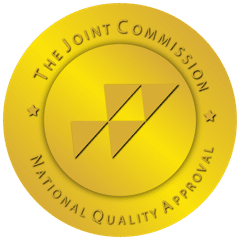Choosing the right addiction treatment program is one of the most critical decisions an individual or family can make when facing the challenges of substance abuse. Lift Off Recovery offers a range of services tailored to meet the unique needs of those struggling with addiction. Understanding the differences between these two types of care is essential for anyone seeking effective recovery solutions.
This article aims to provide a comprehensive comparison of residential and outpatient addiction treatment near Anaheim. By exploring the key differences, benefits, and potential challenges of each approach, we hope to guide you in making an informed decision about the best path forward for yourself or a loved one.
Understanding Addiction Treatment Options
When it comes to addiction recovery, there isn’t a one-size-fits-all solution. The choice between residential (inpatient) and outpatient treatment depends on various factors, including the severity of the addiction, the individual’s personal and professional responsibilities, and the level of support available in their home environment. Each type of treatment offers distinct approaches to care, and understanding these differences is crucial to selecting the right option.
Residential (Inpatient) Treatment Near Anaheim
Residential treatment, also known as inpatient treatment, involves staying at a treatment facility full-time, where individuals receive round-the-clock care in a structured and supportive environment. This type of treatment is typically recommended for those with severe addictions, co-occurring mental health disorders, or those who have struggled with relapses in the past. The immersive nature of residential treatment allows patients to focus entirely on their recovery, away from the triggers and stressors of daily life.
At Lift Off Recovery, while the Anaheim location focuses on outpatient services, residential treatment is available at the nearby Fullerton facility. This proximity ensures that those who need the intensity and structure of inpatient care can access it easily while still being close to their support networks.
Outpatient Treatment in Anaheim
Outpatient treatment offers a more flexible approach to addiction recovery, allowing individuals to continue living at home and managing their daily responsibilities while receiving treatment. This type of care is ideal for those with mild to moderate addictions or for those who have already completed a residential program and are transitioning back to everyday life.
At Lift Off Recovery’s Anaheim location, outpatient services are designed to provide comprehensive care without requiring a full-time stay at the facility. Programs such as the Intensive Outpatient Program (IOP) offer a higher level of support than standard outpatient care, making it a viable option for those who need more structured treatment while maintaining their regular routines.
Residential vs. Outpatient Treatment: Key Differences
When considering addiction treatment options, it’s essential to understand the fundamental differences between residential (inpatient) and outpatient programs. Each approach offers unique benefits and challenges, depending on the individual’s needs, circumstances, and the severity of the addiction.
Structure and Environment
One of the most significant differences between residential and outpatient treatment is the environment in which the care is provided. Residential treatment involves living at the facility, where individuals are immersed in a structured, supportive environment 24/7. This constant supervision and access to care create a safe space for individuals to focus entirely on their recovery. The structured daily routine includes therapy sessions, group activities, and personal time for reflection, all within a controlled setting designed to minimize exposure to triggers.
In contrast, outpatient treatment allows individuals to live at home and maintain their regular daily routines. This flexibility means that patients can attend work, school, or care for family obligations while participating in scheduled therapy sessions. The environment is less controlled than in residential treatment, which can be beneficial for those who have a strong support system at home but may pose challenges for individuals in environments where triggers and stressors are present.
Intensity and Duration
Residential treatment programs are generally more intensive, with longer treatment durations ranging from 30 days to several months, depending on the individual’s needs. The immersive nature of residential treatment allows for a deep dive into the root causes of addiction, offering extensive therapy and support that can be particularly beneficial for individuals with severe addiction issues or those who have had multiple relapses.
Outpatient treatment, while still offering structured care, is less intensive than residential programs. The duration of outpatient programs can vary, with options like the Intensive Outpatient Program (IOP) providing a more concentrated level of care. IOPs typically involve several hours of therapy each week but allow patients to return home afterward. This approach is ideal for those who need significant support but cannot commit to full-time residential care.
Access to Care
Another key difference is the level of access to medical and therapeutic support. In residential treatment, individuals have constant access to a team of healthcare professionals, including doctors, therapists, and support staff. This 24/7 access is crucial for those who need close monitoring, especially during the initial detox phase or when dealing with co-occurring mental health disorders.
Outpatient treatment, on the other hand, involves scheduled visits to the treatment center for therapy and counseling sessions. While this approach allows for more independence, it also requires individuals to manage their time and treatment more autonomously. This can be a challenge for those who may struggle with maintaining motivation or who are exposed to environments that could trigger a relapse.
When to Choose Residential vs. Outpatient Treatment
Deciding between residential and outpatient addiction treatment can be challenging, as both options offer unique benefits depending on the individual’s circumstances. The choice should be guided by several factors, including the severity of the addiction, the presence of co-occurring mental health disorders, the individual’s support system, and their personal and professional responsibilities. This section will help clarify when residential treatment may be more appropriate and when outpatient treatment might be the better choice.

Factors Favoring Residential Treatment
- Severe Addiction:
- Residential treatment is often recommended for individuals with severe addiction or those who have been addicted for a long time. The immersive environment of a residential facility offers the intensity and comprehensive care needed to address deep-rooted addiction issues. The constant supervision and structured setting help ensure that patients are fully focused on their recovery without the distractions or triggers of daily life.
- History of Relapse:
- For individuals who have experienced multiple relapses in the past, residential treatment provides a more controlled and supportive environment. The around-the-clock care and intensive therapeutic interventions can help address the underlying issues that contribute to relapse, making it a crucial option for those struggling to maintain sobriety through outpatient care alone.
- Co-occurring Mental Health Disorders:
- If an individual has a co-occurring mental health disorder, such as depression, anxiety, or PTSD, residential treatment can be particularly beneficial. The comprehensive care available in a residential setting allows for integrated treatment of both the addiction and the mental health condition, offering a holistic approach to recovery.
- Lack of a Supportive Home Environment:
- Residential treatment is often the best option for individuals who do not have a stable or supportive home environment. Being removed from potentially toxic or triggering situations allows individuals to focus entirely on their recovery in a safe and nurturing setting. This separation from negative influences can be vital for those whose home life is a barrier to successful recovery.
- Need for Medical Detox:
- Residential treatment is typically the safest and most effective option for individuals requiring medical detoxification. The constant medical supervision available in a residential facility ensures that detox is managed safely and comfortably, reducing the risk of complications and making it easier for patients to transition into the therapeutic phase of treatment.
Factors Favoring Outpatient Treatment in Anaheim
- Mild to Moderate Addiction:
- Outpatient treatment is well-suited for individuals with mild to moderate addiction who do not require the intensive care of a residential program. Those who are highly motivated, have not experienced significant relapses, and have a strong support system at home may find outpatient care to be an effective and flexible option.
- Strong Support Systems:
- For individuals with a supportive and stable home environment, outpatient treatment offers the flexibility to maintain recovery while staying connected to their daily lives. Family and friends can play an integral role in supporting the individual’s recovery, providing encouragement and accountability as they progress through their treatment program.
- Ability to Maintain Responsibilities:
- Outpatient treatment is ideal for those who need to balance their recovery with work, school, or family obligations. The flexibility of outpatient programs allows individuals to attend therapy sessions around their existing schedules, allowing them to maintain their responsibilities while receiving the care they need.
- Lower Cost and Accessibility:
- Outpatient treatment is generally more affordable than residential care, making it a more accessible option for individuals with financial constraints. Additionally, outpatient programs allow individuals to stay in their local community, reducing the disruption to their daily lives and making it easier to access support services.
- Post-Residential Care:
- Outpatient treatment is often used as a step-down option for individuals who have completed a residential program. It provides ongoing support as they transition back to their everyday lives, helping them apply the skills they learned in residential treatment and maintain their sobriety.
Lift Off Recovery | Addiction Treatment Near Anaheim
Choosing between residential and outpatient addiction treatment is vital to recovery. Both options have unique benefits, and understanding your needs will guide the right decision.
If you’re ready to take the next step, contact Lift Off Recovery today to explore your options and start your journey to recovery. We’re here to help.





